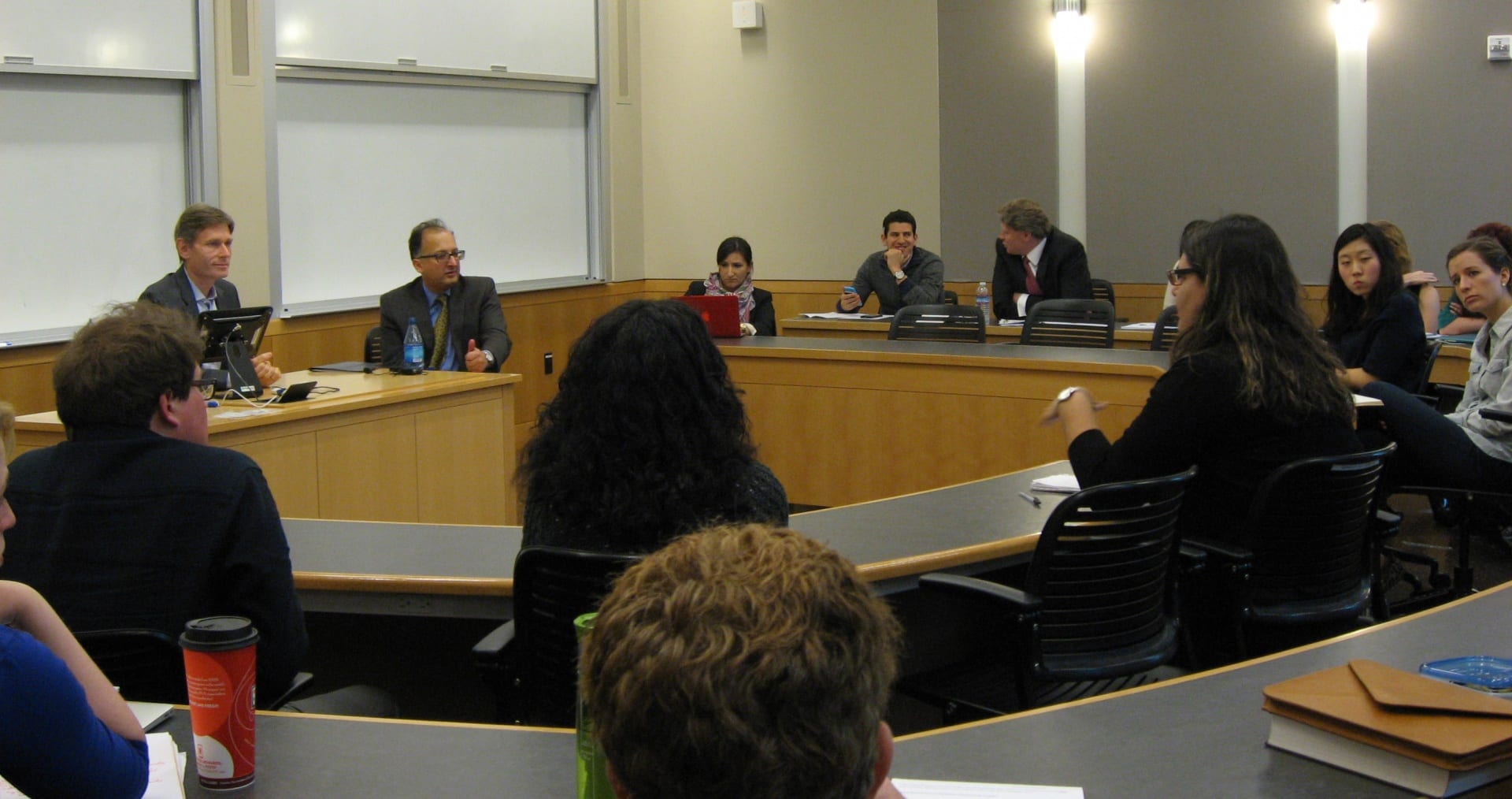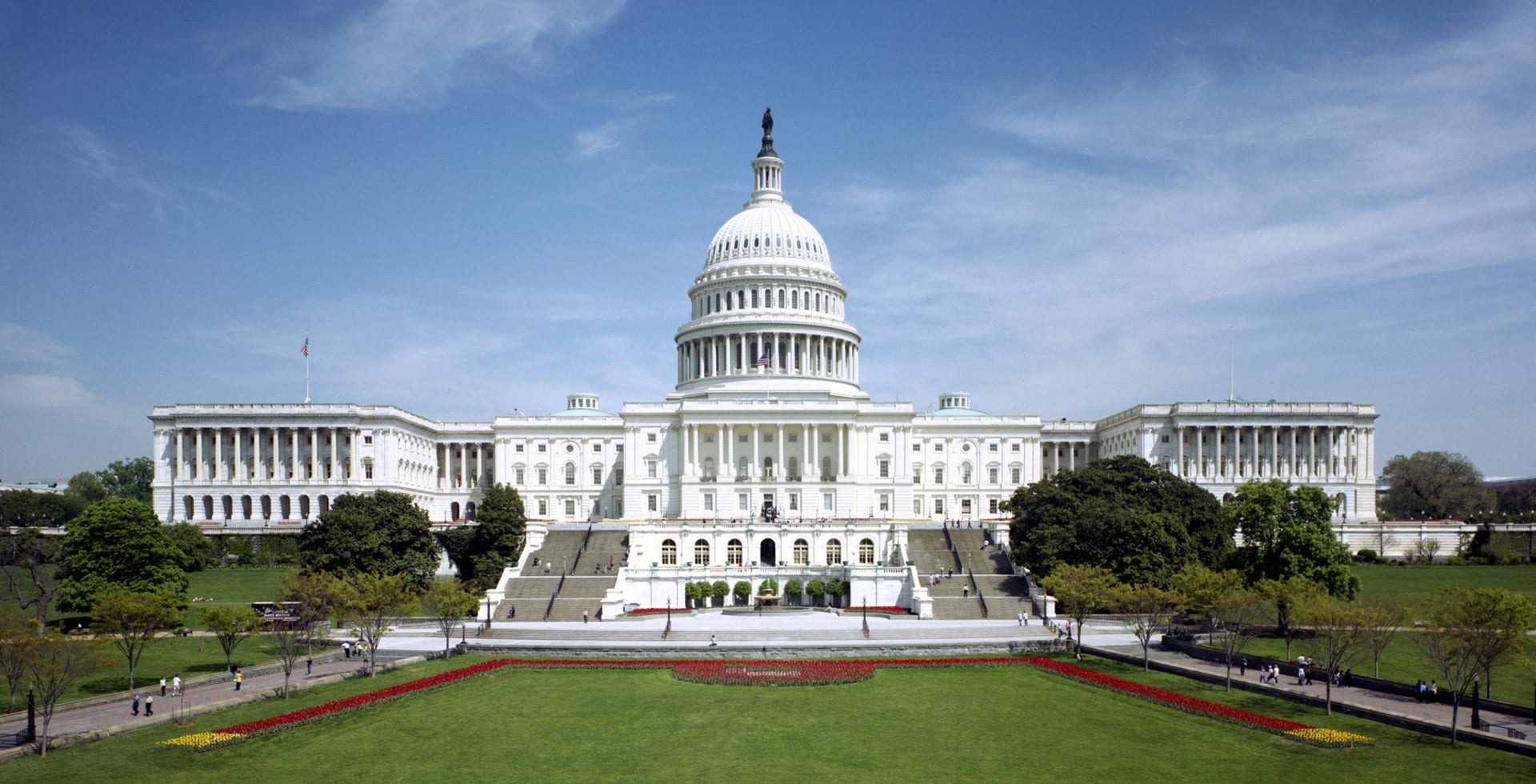January-April 2016
Colloquium on International Law and Politics
141 Law Building, 11:20 am-1:10 pm
|
January 19 |
Benedict Kingsbury, New York University “The Public Law of Global Hybrid and Private Governance” |
|
January 26 |
Noah Novogrodsky, University of Wyoming “Is ISIS a State? Human Rights Minimalism and State Formation” |
|
February 2 |
Samantha Besson, University of Fribourg (Switzerland) “Subsidiarity in International Human Rights Law: What Is Subsidiary About Human Rights?” |
|
February 16 |
Joel Trachtman, Tufts University “The Growing Obsolescence of Customary International Law” |
|
March 1 |
Marc Weller, University of Cambridge (United Kingdom) “Forcible Humanitarian Action” |
|
March 8 |
Adam Chilton, University of Chicago “United Nations Endorsement and Support for Human Rights: An Experiment on Women’s Rights in Pakistan” |
| March 11 1:30-3:00 pm 141 Law Building |
Saira Mohamed, Berkeley Law “Leadership Crimes” |
|
March 15 |
Sergio Puig, University of Arizona “Blinding International Justice” |
|
March 29 |
Rachel Brewster, Duke University “Treaty-Dependent Statutes: The Development and Interpretation of the Foreign Corrupt Practices Act” |
|
April 5 |
Michael Waibel, University of Cambridge (United Kingdom) “Are Arbitrators Political?” |
|
April 12 |
Chris Whytock, UC Irvine “State Remedies For Human Rights” |
|
April 19 |
Mark Wu, Harvard Law School The “China, Inc.” Challenge To Global Trade Governance |
In this colloquium, participants will address some of the most challenging questions of international law and politics by studying the cutting-edge work of the field’s leading scholars. Each class meeting will feature a guest speaker who will present their research; subjects include issues in international trade, human rights, arbitration and litigation, and international legal theory.
Seating is limited. If you are interested in attending, please contact Karen Chin (kchin@law.berkeley.edu).
February 2, 2016 (Tuesday)
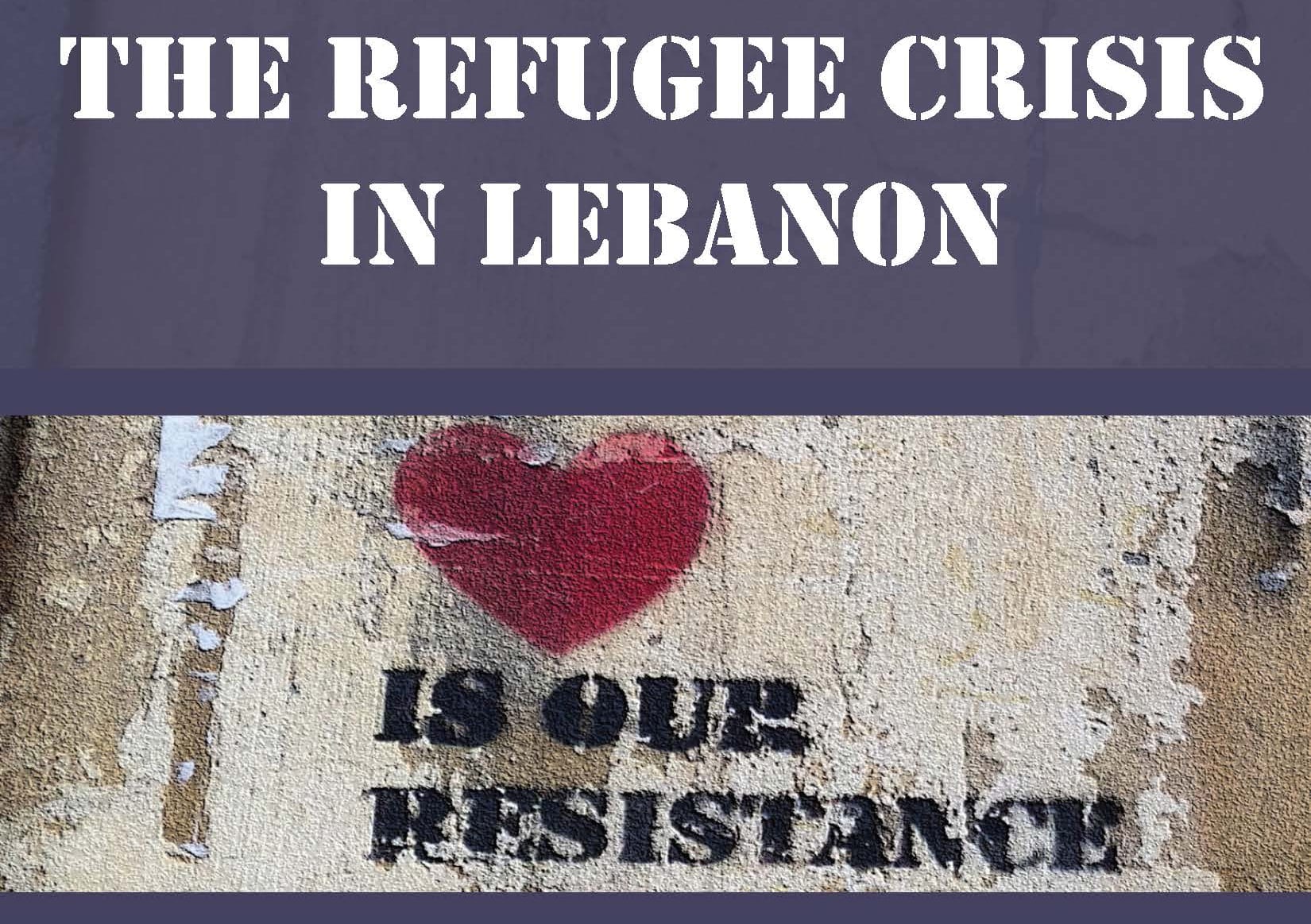 The Refugee Crisis in Lebanon
The Refugee Crisis in Lebanon
132 Law Building, 12.45 pm
lunch will be served
Sponsored by the International Refugee Assistance Project (IRAP) and the Student-Initiated Legal Services Projects (SLPS) Program
Come hear six Berkeley Law students who have recently returned from a week-long trip to Beirut with IRAP to discuss the situation of Syrian and Iraqi refugees in Lebanon today. Educate yourself on the largest refugee crisis since World War II with on-the-ground accounts, and learn how you can help.
February 4, 2016 (Thursday)
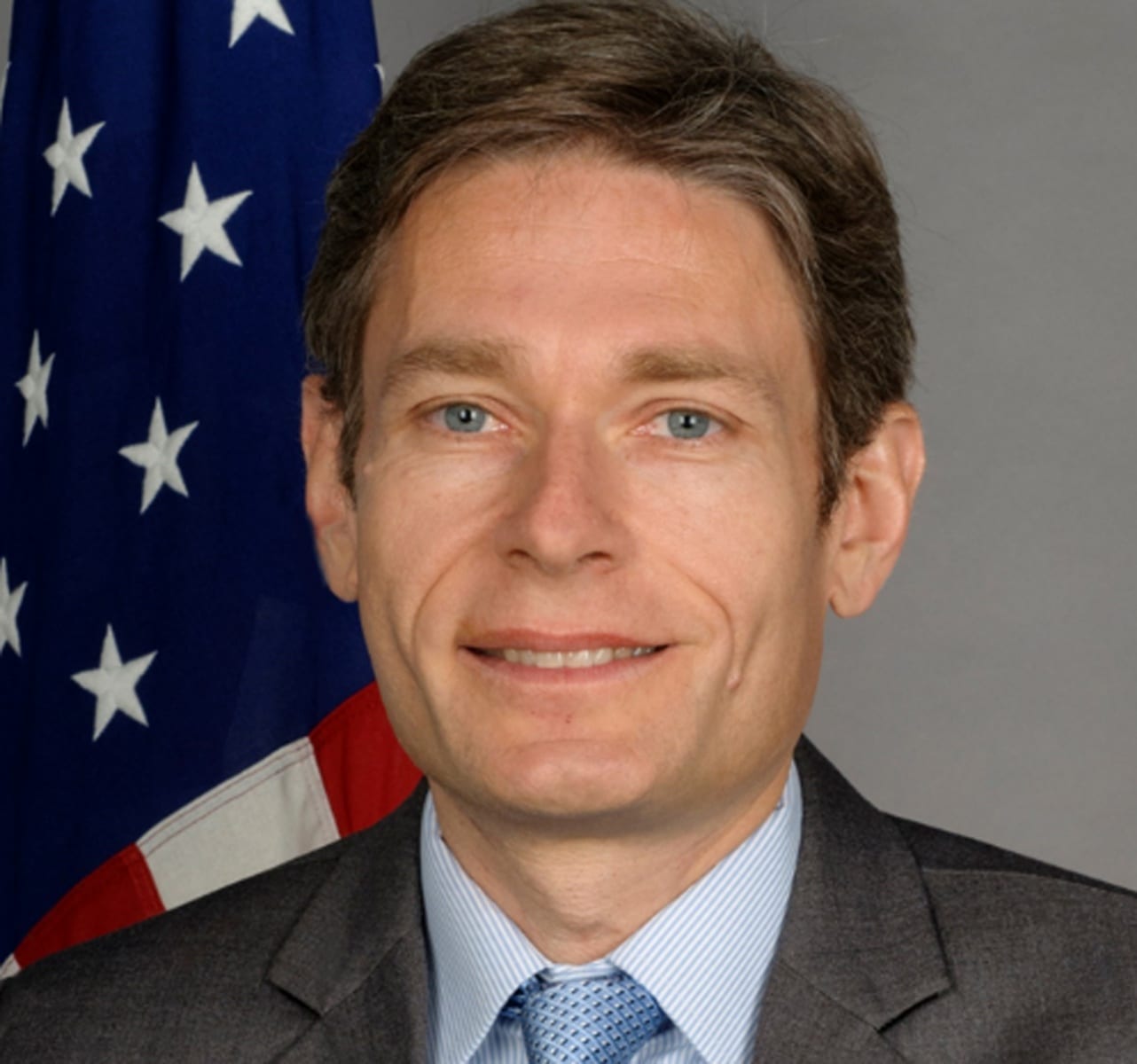 A Conversation with Tom Malinowski (UCB ’87)
A Conversation with Tom Malinowski (UCB ’87)
US Assistant Secretary of State for Democracy, Human Rights, and Labor
134 Law Building, 11:05 am-12:00 pm
Co-sponsored with the Human Rights Center and International Human Rights Law Clinic
Seating is limited with priority given to Berkeley Law students. Reservations will be made on a first-come/first-served basis. RSVP to Karen Chin (kchin@law.berkeley.edu).
Join us for a conversation with Tom Malinowski (UC Berkeley ’87), US Assistant Secretary of State for Democracy, Human Rights, and Labor. The Bureau of Democracy, Human Rights, and Labor leads the US efforts to promote democracy, protect human rights and international religious freedom, and advance labor rights globally.
Tom Malinowski, who earned his undergraduate degree from UC Berkeley, was sworn in as Assistant Secretary of State in 2014. Previously, he was Washington Director for Human Rights Watch, one of the world’s leading independent international organizations dedicated to defending and protecting human rights.
He has also served as Senior Director on the National Security Council at the White House, where he oversaw the drafting of President Clinton’s foreign policy speeches and strategic communications efforts around the world. Before working in the White House, he was a speechwriter for Secretaries of State Warren Christopher and Madeleine Albright, and was a member of the State Department’s policy planning staff.
He also holds an M.Phil. in political science from Oxford University, where he was a Rhodes Scholar.
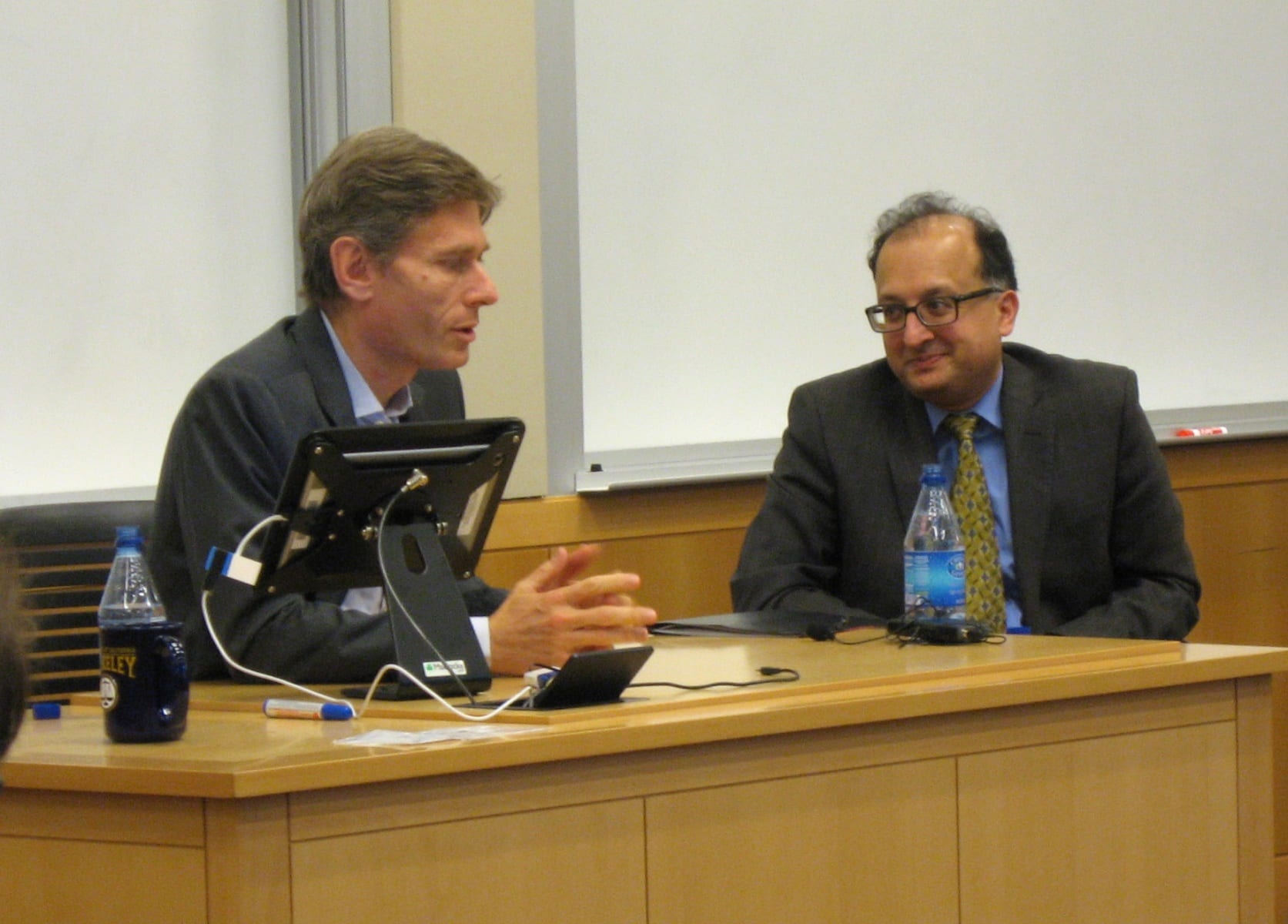
March 4, 2016 (Friday)
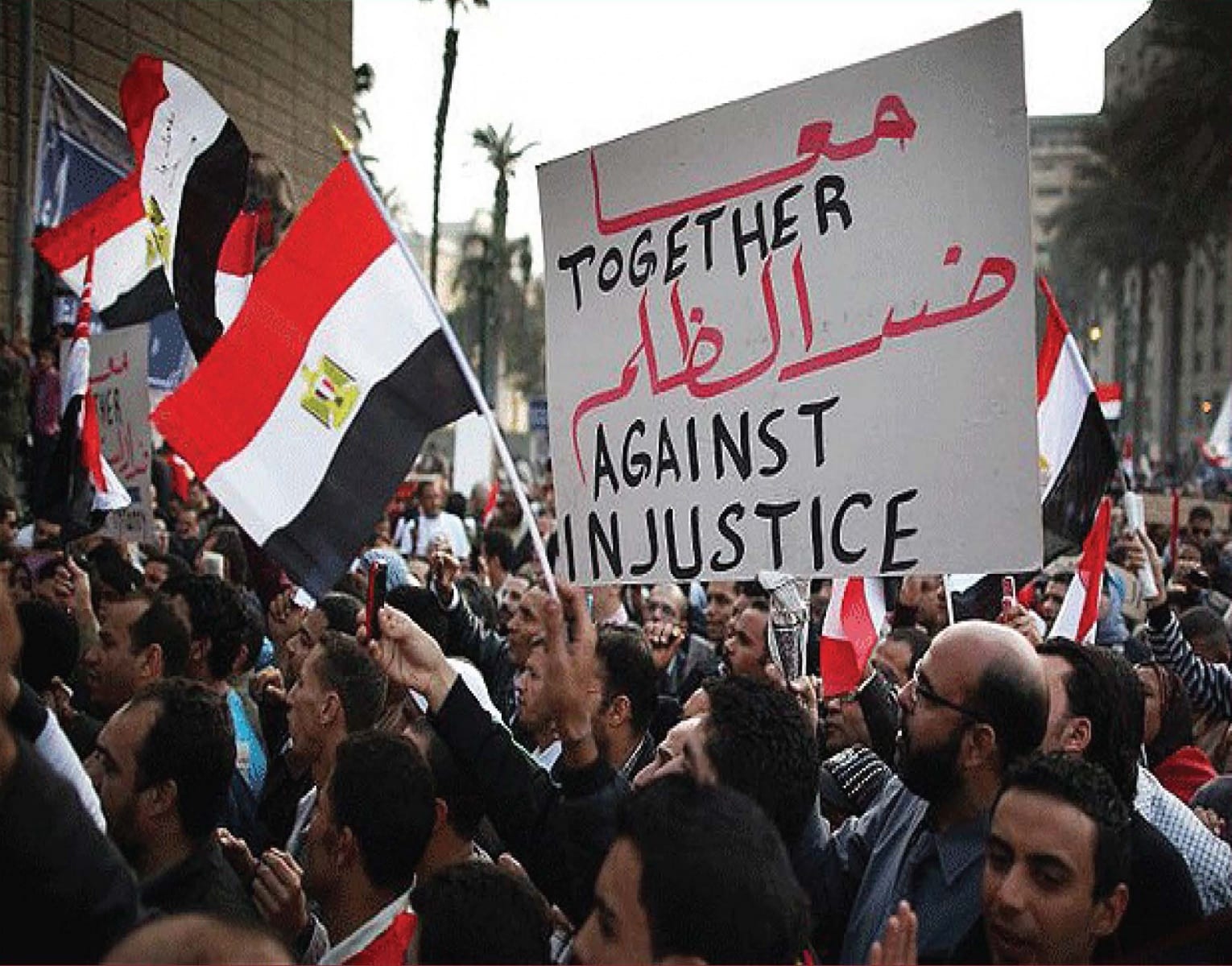 Panel and Discussion on “Egypt: Five Years Later”
Panel and Discussion on “Egypt: Five Years Later”
100 Law Building, 4:00-6:30 pm
Co-sponsored with the Center on Institutions and Governance; the Institute of International Studies; the Center for Arab Societies and Environments Studies; the Center for Middle Eastern Studies; and the Institute for the Study of Societal Issues
The Egyptian Uprising of January 2011 was a bold moment in Egyptian history and its initial success led many to label that moment an “Arab Spring.” Many things that followed did not go as imagined or planned. The election of an Islamist president, the issuing of several irregular presidential decrees, the deteriorating security situation in Sinai and the country, the intervention of the military, and finally his overthrow in another popular uprising were a few of the major events in Egypt in the immediate years that followed the first uprising, The speakers in this panel, all academics who are also public intellectuals, will provide an assessment of the current situation in Egypt following the second uprising of 2013 and the repercussions of current regime’s policies and the general conditions in Egypt today.
MODERATOR
Nezar AlSayyad
Professor of Architecture, Planning, and Urban History, UC Berkeley
Faculty Director of Center for Arab Societies and Environments Studies, UC Berkeley
SPEAKERS
“The Egyptian Revolution: A People’s Quest for Collective Sovereignty”
Khaled Fahmy
Professor of History, The American University in Cairo
Visiting Professor in Modern Middle Eastern History, Harvard University
“Ridiculing Politics in Egypt: Understanding the Military Autocracy in Egypt”
Amr Hamzawy
Professor of Political Science, Cairo University
Visiting Scholar at the Center on Democracy, Development, and the Rule of Law, Stanford University
“Egypt’s Democratic Future Between Revolution and Counterrevolution”
Emad Shahin
Professor of Public Policy, The American University in Cairo
Visiting Professor at the School of Foreign Service, Georgetown University
“Democratic Values for New Egypt”
Nagwan Soliman
Researcher, European University Institute
Visiting Scholar, Center on Institutions and Governance, UC Berkeley
March 4-5, 2016 (Friday-Saturday)
Comparative and International Administrative Law and Politics Workshop
UC Berkeley
This invitation-only conference will bring together scholars from the United States and Europe who are working in domestic administrative law and in international law and have an interest in comparative administrative law. Scholars will have the opportunity to present current working papers.
March 13, 2016 (Sunday)
 The 2016 Chowdhury Center Distinguished Lecture:
The 2016 Chowdhury Center Distinguished Lecture:
Nobel Laureate Amartya Sen
In conversation with Pranab Bardhan
Professor of Economics, UC Berkeley
The Sanctuary, First Presbyterian Church
2407 Dana Street, Berkeley
4:00-6:00 pm
Co-sponsored with The Subir and Malini Chowdhury Center for Bangladesh Studies; the Institute for South Asia Studies; the Human Rights Center; the IAS Teaching Program; the Department of Political Science; the School of Public Health; the Department of Economics; the Goldman School of Public Policy; the Department of South and Southeast Asian Studies; the Catherine and William L. Magistretti Chair in South and Southeast Asian Studies; the Master of Development Practice; and the Center of Evaluation for Global Action
isas@berkeley.edu | 510-642-3608
Amartya Sen is a highly acclaimed economist, writer and philosopher who was awarded the 1998 Nobel prize for his contributions to welfare economics. Regarded as one of the world’s foremost thinkers, Professor Sen was featured on Time Magazine’s list of ‘World’s 50 Most Influential People Who Matter’ and was named the ‘Third Most Influential Thought Leader of 2014” by Gottlieb Duttweiler Institute.
Professor Sen helped create the United Nations Human Development Index and is best known for his work on famine, poverty and the role of freedom as a means for development. He was the first person to measure gendercide and in 1990, determined that an astonishing 100 million women were demographically “missing” in the world due to vicious discriminatory practices. He has long championed education for girls and economic empowerment of women – as both a moral right and a tool for development.
Currently the Thomas W. Lamont University Professor and Professor of Economics and Philosophy at Harvard University, Sen has also worked as a Professor at the London School of Economics and at The University of Oxford. His research has encompassed economic theory, ethics and political philosophy, welfare economics, development economics, public health, and gender studies.
March 28, 2016 (Monday)
Panel on “Stopping War Crimes Before They Happen: Preventing Violations of the Law in Armed Conflict”
Berkeley Launch of The International Review of the Red Cross on “Generating Respect for the Law“
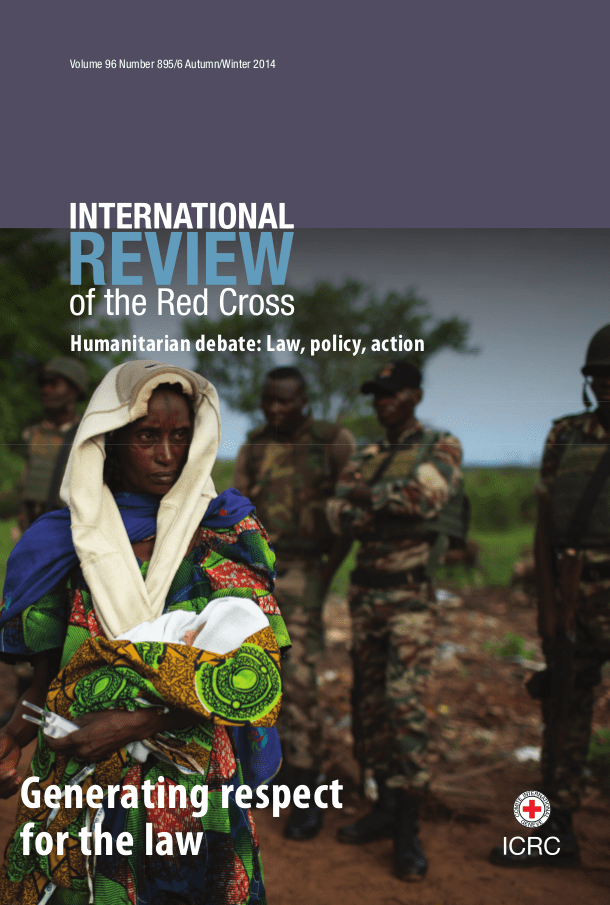 Panel discussion 5:00- 6:30 pm
Panel discussion 5:00- 6:30 pm
Reception 6:30-7:00 pm
132 Law Building
Sponsored by the International Committee of the Red Cross, the American Red Cross, the American Society for International Law’s Lieber Society, the Berkeley Center for the Study of Law and Society, and the Berkeley Human Rights Center
PANEL:
Tracey Begley
International Committee of the Red Cross, Washington DC (moderator)
Andrew Carswell
International Committee of the Red Cross, Ottawa, Canada
Richard Jackson
Colonel (Retired), Special Assistant to the US Army Judge Advocate General for Law of War Matters
Kate Jastram
Blum Center for Developing Economies, UC Berkeley
Sharon Weill
Visiting Scholar, Center for the Study of Law and Society, Berkeley Law; Lecturer in international law at Sciences-Po (Paris) and Geneva
During armed conflict, even the most basic tenets of the law are often violated. How can one ensure that respect for human life and dignity remains a common concern by all sides to the conflict? What can be done to encourage respect for the law and prevent violations? This year, the International Committee of the Red Cross (ICRC) is organizing a series of conferences, including this Berkeley launch event, on the theme of “Generating Respect for the Law,” in order to tackle a range of questions related to improving respect for international humanitarian law. Two of the ICRC Review’s authors will be joined by speakers from ICRC and the Office of the US Judge Advocate General to highlight measures being taken with and by armed forces, non-state actors, national courts and academia to promote better respect for the law.
For more information, contact Patty Moddelmog (pattyem@law.berkeley.edu).
March 30-April 2, 2016 (Wednesday-Saturday)
American Society of International Law’s Annual Meeting
Washington DC
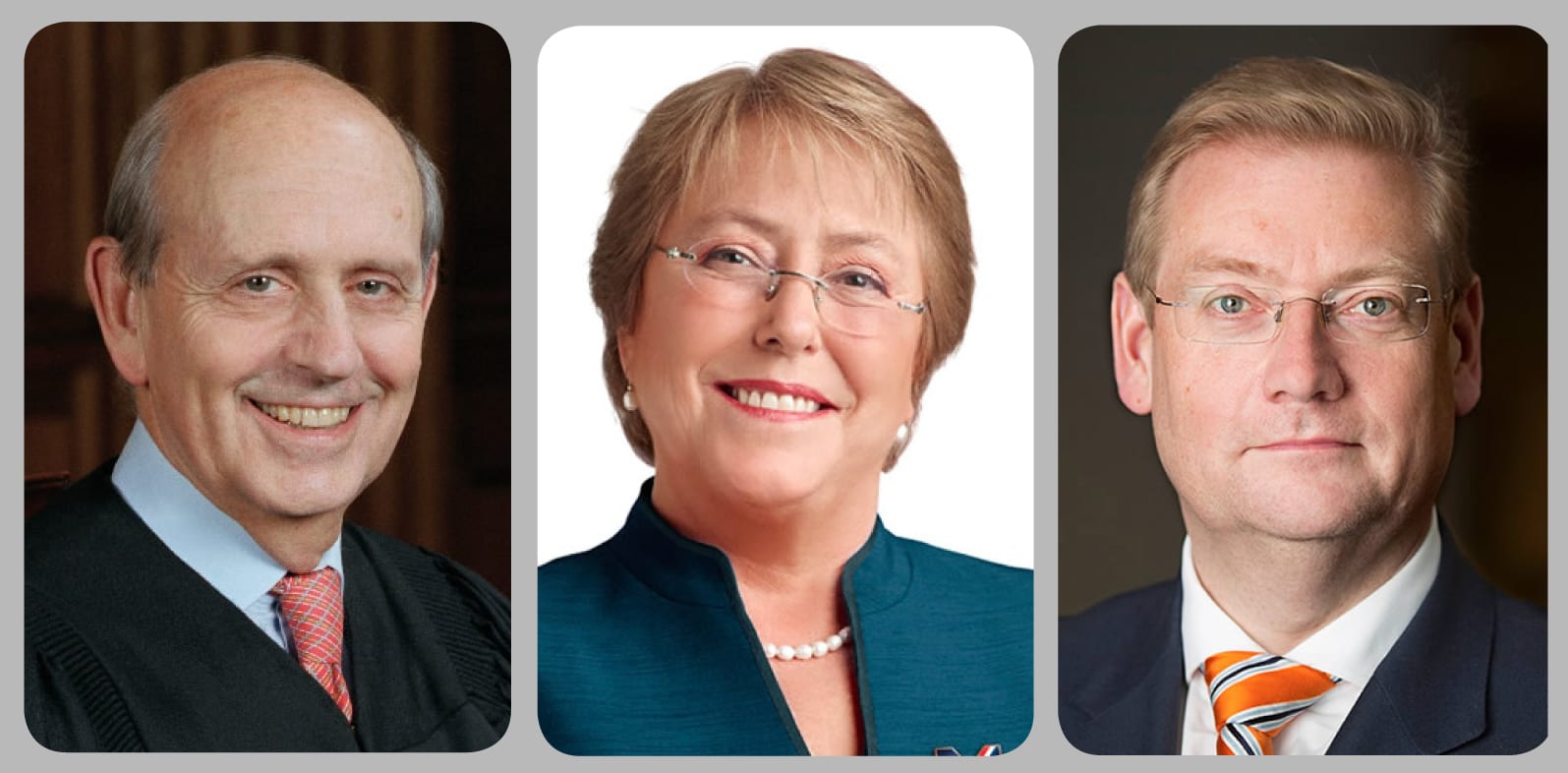
The American Society of International Law (ASIL), with its membership of scholars, practitioners, and students of international law from around the world, will explore the theme of “Charting New Frontiers in International Law” at the 2016 Annual Meeting. The meeting will feature keynote addresses by Chilean President Michelle Bachelet (Grotius Lecture) and US Supreme Court Associate Justice Stephen Breyer (Assembly Keynote), as well as Dutch Minister of Security and Justice Ard van der Steur (Closing Plenary Keynote). For more information, see the ASIL Annual Meeting website.
Berkeley Law is an ASIL Academic Partner.
March 31, 2016 (Thursday) (CANCELED)
2016 Riesenfeld Award and Symposium
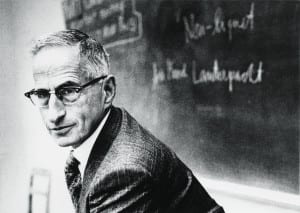
Organized by the Berkeley Journal of International Law
Sponsored by the Miller Institute for Global Challenges and the Law
One of the great traditions at Berkeley Law is the Stefan Riesenfeld Award, which allows students, alumni/ae, faculty, and staff to come together to recognize and celebrate achievement in international law. Stefan Riesenfeld (’37) was a Berkeley Law professor and recognized authority in numerous legal specialties including international law, comparative law, property law, creditors’ remedies and bankruptcy, administrative law, and legal history. Each year the Award is given to a distinguished scholar or practitioner who has made outstanding contributions to the field of international law and who has demonstrated a commitment to the values that Professor Riesenfeld espoused. The occasion is also marked by convening a Symposium Panel to examine a key international law issue.
April 11, 2016 (Monday)
 Deadline for submitting application for Certificate of Specialization in International Law
Deadline for submitting application for Certificate of Specialization in International Law
Berkeley Law students may undertake a specialization in international law. The specialized curricular program ensures students develop a broad background in fundamental areas of law while receiving advanced training in international law. Students who meet the requirements are awarded a Certificate of Specialization in International Law.
For more information on the requirements for the certificate and an application, click here.
May 12, 2016 (Thursday)
Certificate of Specialization in International Law Award Ceremony
132 Law Building, 2:00-3:30 pm
Please join us in recognizing the extraordinary achievements of the Berkeley Law students as recipients of the 2016 Certificate of Specialization in International Law.
To RSVP or for more information, contact Toni Mendicino (tmendicino@law.berkeley.edu / 510-643-7969).

